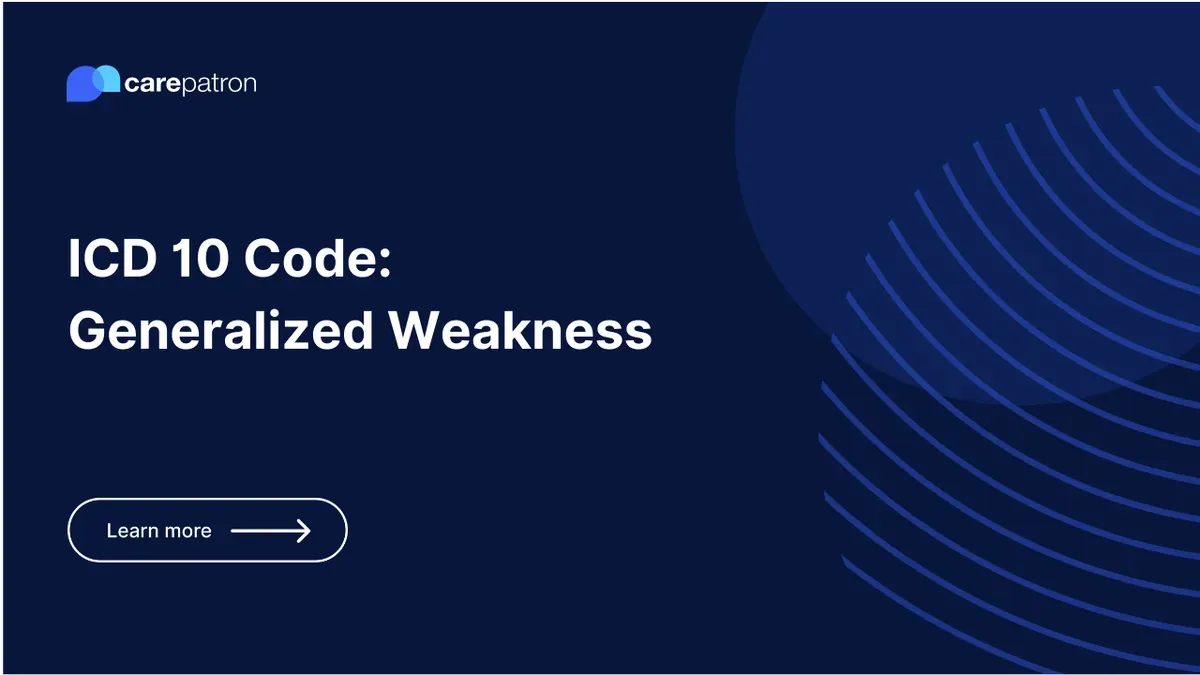
Generalized Weakness ICD-10-CM Codes | 2023
Discover ICD-10-CM codes for Generalized Weakness. Accurate classification and easy reference for diagnosing and treating this condition.
Use Code
Commonly asked questions
Various factors, including neuromuscular disorders, metabolic disturbances, systemic diseases, endocrine disorders, medication side effects, and certain nutritional deficiencies, can cause generalized weakness.
Diagnosing generalized weakness involves a comprehensive evaluation, which includes a detailed medical history, physical examination, and possibly additional diagnostic tests such as blood tests, imaging studies, nerve conduction studies, or electromyography (EMG).
Treatment for generalized weakness focuses on addressing the underlying cause. This may involve managing underlying medical conditions, optimizing nutrition, providing physical therapy or rehabilitation, and sometimes prescribing medications to alleviate symptoms or improve muscle function.
EHR and practice management software
Get started for free
*No credit card required
Free
$0/usd
Unlimited clients
Telehealth
1GB of storage
Client portal text
Automated billing and online payments
